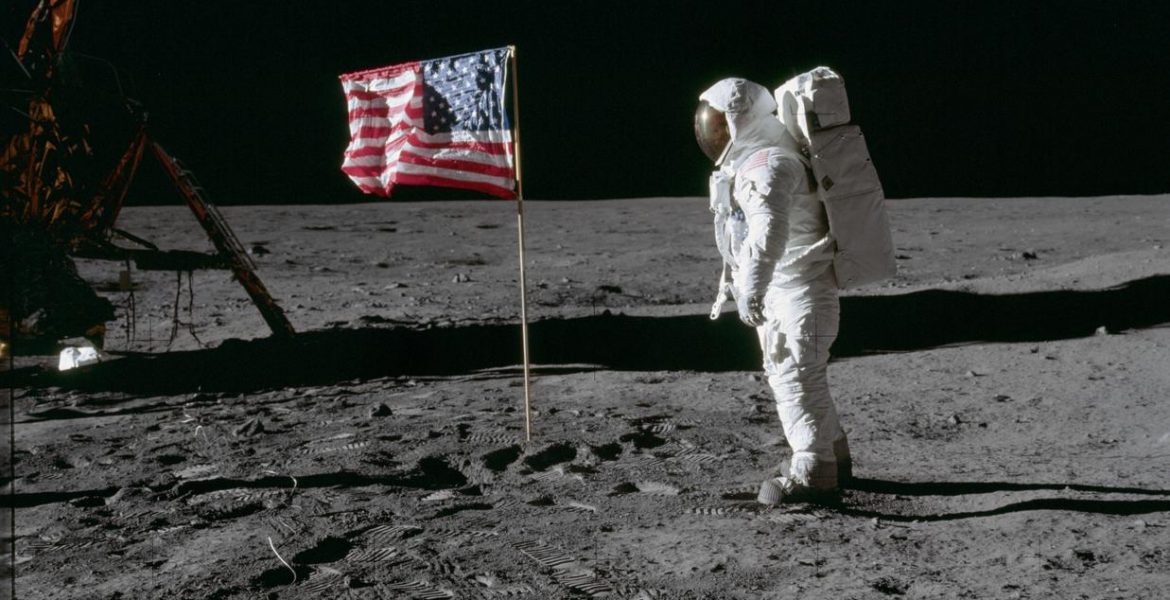Space enthusiasts will partake in National Moon Day on July 20 to commemorate the historic U.S. moon landing in 1969.
When Neil Armstrong and Buzz Aldrin set foot on the moon, it was “…the single greatest technological achievement of all time,” according to NASA.
The U.S. landing on the moon was significant in the way it opened the door for the expansion of space exploration. It paved the way for people like Elon Musk, founder of SpaceX, and Richard Branson, founder of Virgin Galactic, to launch their own private space programs, according to Dr. Bill Bush, a history professor, who teaches “Topics in U.S. History: The 1960s” at Texas A&M University-San Antonio.
Bush said that fulfilling President John F. Kennedy’s promise to put a man on the moon was an achievement for humanity, but it also cemented the U.S. victory in the global space race.
“The Apollo program was designed to land humans on the Moon and bring them safely back to Earth,” according to the Smithsonian National Air and Space Museum. Apollo 11 was the first space mission to land humans on the moon, then six more missions followed.
- Apollo 11 (July 1969) -First mission to land on the moon.
- Apollo 12 (November 1969) -Struck by lightning twice just after launch.
- Apollo 13 (April 1970)-Only mission to not land on the moon due to a system malfunction.
- Apollo 14 (February 1971) -Spent the most time on the lunar ground, up to that point, at 9 hours, 23 minutes.
- Apollo 15 (July 1971) -Had the first automotive vehicle on the moon.
- Apollo 16 (April 1972) -The first spacewalk happened during their return back to Earth.
- Apollo 17 (December 1972) -Collected a 4.2 billion-year-old rock from the moon.
An event like the moon landing was an achievement that surpassed all expectations. Bush said that its ability to bring people together for that one moment was a step in the right direction during a decade filled with turmoil and violence.
“It was something that really blew people’s minds…the first photographs of the earth were taken from space,” Bush said.
Bush said he recalls seeing the unimaginable images his mother saved. They are things that cannot be forgotten.
“My mom had newspaper front pages framed,” Bush said.” I just remember that image of Neil Armstrong coming off the ship and setting foot on the surface …famously saying ‘one small step for man, one giant (leap) for mankind…,’”
July 20, 1969 is a date that hasn’t been forgotten. It serves as a day that highlights one of the greatest achievements in the history of mankind.
For those who are interested and want to commemorate National Moon Day, there are many things they can do.
“I would suggest that people should go to the NASA website,” Bush said. “I would imagine NASA has its own commemorations that would be worth checking out…you might also check some good films about the moon landing.”
Bush said his favorite movies about the moon landing are “Apollo 11,” a documentary film, and “First Man,” a biopic about Neil Armstrong.
The Mesquite asked readers on Facebook and Instagram what some of their favorite films about space exploration are.
Some responses we received were “Interstellar,” “Apollo 13,” “Over the Moon,” “Moon,” “2001: A Space Odyssey” and “Hidden Figures.”
English graduate student Taryn Deppe’s favorite is “After Earth” starring Will Smith and Jaden Smith.
Dr. Brandon Radoman-Shaw, a geology adjunct at A&M-San Antonio, emailed The Mesquite and said his favorite film is “Apollo 18,” a horror film about a secret, originally scrapped Apollo mission.
“I think if you wanted to celebrate National Moon Day, this would be an appropriate film to see that doesn’t take itself too seriously,” said Radoman-Shaw, whose dissertation explored Venusian geochemistry. “Especially if you like a few jump scares.”
On this 52nd anniversary people can see how the moon landing pushed the boundaries for space exploration worldwide.
The success of space exploration faced criticism over poverty among Black Americans. “Whitey on the Moon” by Gil-Scott Heron explored this.
“That video of Neil Armstrong coming off the ship onto the moon…became a part of the culture,” Bush said. “It was very influential for kids my age…to see those kinds of images and to have a different perspective about the relationship of our planet to the galaxy and the rest of the universe.”
For more information, visit https://nationaltoday.com/national-moon-day/ or https://airandspace.si.edu/learn/highlighted-topics-/apollo
Clarissa Martinez contributed to this story.







